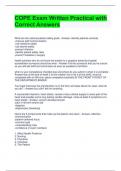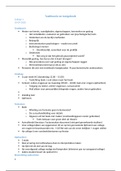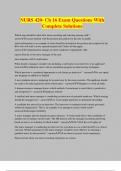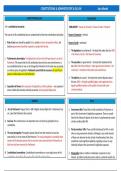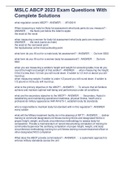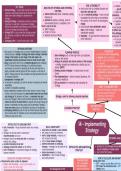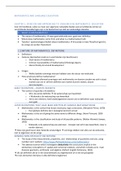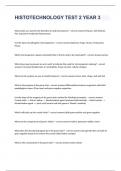Lecture 1: Introduction and Automaticity
Introduction to the Field of Social Cognition
● Social perception
- Seeing people individually or as groups
● Attributions
- Describing processes to events
- Circumstances, etc.
● Decision
- Why we make certain decisions
● Attitudes
- How they form, towards certain things
- Why we like / dislike
Social Cognition: “How people make sense of people (including themselves)”
- Assigning meaning to the world around us
An Example of Socio-Cognitive Research
● Study by Ron Dotsch and Daniel Wigboldus (Radboud University, Nijmegen)
● Virtual reality lab
Virtual Prejudice
● Virtual environment with a bus shelter
● Participant’s task
- Walk up to person and remember word and number combination
● Avatars with white Dutch and Moroccan facial features
- Dutch participants would keep more distance from Moroccan participants
Typical of Contemporary Cognitive Social Psychology
● Experimental lab research on social behaviour
● Cognitive and physiological measurements
● Individual, unconscious, schema-driven behaviour
→ Driven by stereotype, students of Dutch descent keep more distance from
moroccans (than from those of Dutch descent) and have higher skin conductance
(stress)
,Behaviourism vs Social Cognition
● Classic (behaviourist) Perspective
stimulus --------> response
stimulus ---> black box ---> response
- Can't ever test this black box
● Socio-cognitive Perspective
stimulus --->information processing, mental representations (cognitions)---> response
- See brain more as a computer
Social Cognition
Characteristics:
● Mentalism (cognitive representations)
- Takes seriously what is going on in observer’s minds
● Information processing process
- How does it happen, what exactly is going on
● Cross-fertilization (cognitive psychology, neuroscience)
- Use lots of different theories and approaches to narrow on black box
● Relevant ‘real world’ phenomena
- Not all nerdy, geeky studies
Social Cognition: People Are Not Things
People as objects… (as compared to e.g. chairs)
- Intentionally influence their environment
- “Look back”
- Often imply “the self”
- Change, are complex
- Have crucial unobservable traits
- Accuracy of perception is often hard to determine
- Seek explanation / trigger a “search for meaning”
Models of the Social Thinker
1) Consistency Seeker
● Consistency in behaviour, attitudes, self image
● This provides meaning, certainty
● Cognitive dissonance theory (Festinger) (behaviour isn't in line with attitude)
, - $1 versus $20 experiment (Festinger & Carlsmith, 1959)
- Really boring, told to tell new participants it was REALLY cool for either $1 or
$20
- Then asked how much they liked the task (attitude)
- More positive attitude in $1 condition
- $20 condition = task is boring, lied that task is nice, reasonable compensation
= little dissonance
- $1 condition = task is boring, lied that task is nice, quite low compensation =
dissonance
→ change attitude to reduce dissonance (“actually task was quite fun”)
2) Cognitive Miser
● Avoids cognitive effort (lazy, don't want to process information)
● Uses heuristics (rules of thumb) to facilitate judgements
● Relies on schematic information processing (e.g. stereotyping)
3) Naive Scientist
● Wants to figure out causes
● Systematic information processing
● Aimed at making informed, accurate judgements
● Attribution
- E.g. Jones and Davis’s theory
- Why does someone act like that?
- Because that’s the way they are (character)?
- Because they have to (societal pressure)?
→ out-of-role behaviour
4) Motivated Tactician
● Combination of previous 3 models
● When a schema / heuristic?
● Accurate picture / informed decision?
● For example: New smartphone
- Sifting through all tests? → systematic processing
- When do you just use your intuition? (‘friend also has this one’) → heuristic
processing
● Two Factors:
1) Motivation: do you want to create an accurate picture?
2) Cognitive Capacity: can you create an accurate picture?
● Not motivated / incapable → cognitive miser
- I'll take the phone my friend also has
● Motivated + capable → naive scientist
- I go home, check out details, rating websites
, ● Two models of information processing (dual process model)
1) Fast, but somewhat less accurate (System 1)
2) Slow, but more accurate (System 2)
Automaticity
Subliminal Priming
● Vicary (1957)
- Subliminal messages during the film: ‘hungry? eat popcorn’; ‘drink coca cola’
- More popcorn and cola sales during the intermission?
Behavioural Priming
● Aarts & Dijksterhuis (2000)
- Exclusive restaurant photos (vs neutral scenes) makes the norm salient
- Measured how much mess participants made
- Eat properly!
● People start behaving according to the norm
- Fewer crumbs when eating a cracker (when shown nicer restaurants)
● Not necessarily visual
- Also works for smells!
● Lemon-scented all purpose cleaner
Models of the Social Thinker (pt 2)
5) Activated Actor
● Social environment ‘primes’ automatic behaviour, without that people are aware of it
Automaticity
● When do we call something ‘automatic’?
● What types of automaticity are there?
Criteria for Automaticity (Bargh)
1) Unconscious of (could be either one)
- Stimulus (subliminal perception <1/60 sec.)
- Consequence of stimulus
2) Efficient
- Requires little or no attention
- E.g. riding a bike while typing message on phone

